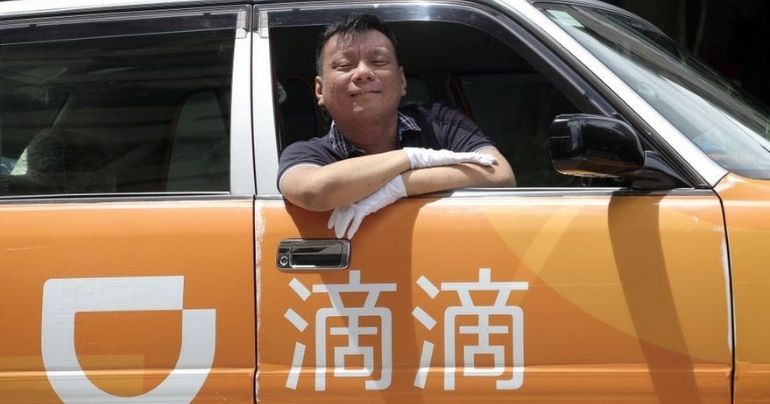Chinese ride-hailing giant Didi Global has ended its first day on the New York Stock Exchange with a valuation of $68.49bn (£49.6bn).
That is even as its shares closed just 1% higher than their $14 offering price after slipping back from earlier strong gains.
It was the biggest listing in the US by a Chinese company since Alibaba’s debut in 2014.
China’s answer to Uber raised $4.4bn in the Initial Public Offering (IPO).
It is the latest in a series of Chinese companies to cash in on the booming US stock market.
In the first six months of the year, some 29 Chinese companies raised a total of $7.6bn in IPOs, according to financial markets data provider Refinitiv.
This is despite years of tensions between Washington and Beijing, and concerns raised by US regulators over some Chinese firms’ financial reports.
Didi had originally hoped for a valuation of as much as $100bn, according to a Reuters report in March.
Those expectations were said to have been scaled back after potential investors voiced concerns about the speed and profitability of the firm’s expansion plans.
Didi, like the majority of ride-hailing platforms, had been loss-making until it reported a $30m profit for the first three months of this year.
In 2020, it reported a $1.6bn annual loss as the business was hit by the pandemic.
In June this year, it was reported that Didi was being probed by China’s market watchdog.
The State Administration for Market Regulation was investigating whether it had unfairly squeezing out smaller rivals, according to Reuters.
Beijing has been increasingly reining in the country’s technology giants, including Alibaba and Tencent.
The company’s founder Cheng Wei has said he had the idea to launch a ride-hailing platform in 2012 after he struggled to book a taxi on a freezing night in Beijing.
Mr Cheng will own a 6.5% stake in the company, while having a 35.5% voting power due to a dual-class share structure that is popular among technology firms.
Japan’s SoftBank is Didi’s largest single investor with a stake of more than 20%. It is also backed by Chinese technology giants Alibaba and Tencent.
Uber also owns 12% of the firm as a result of Didi taking over Uber China in 2016.
SOURCE: BBC







Leave a Comment